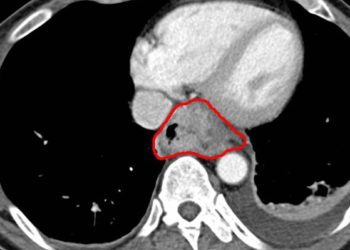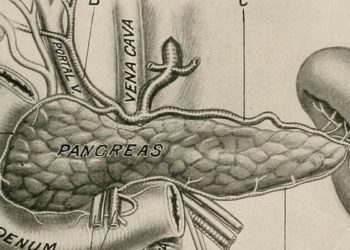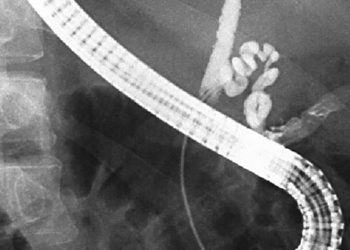Upadacitinib significantly improves clinical remission rate for moderately to severely active ulcerative colitis
1. Upadacitinib led to significantly greater percentages of clinical remission compared to placebo for both induction and maintenance studies.
2. Treatment discontinuation due to serious adverse events was more frequent among the placebo group than those receiving upadacitinib.
Evidence Rating Level: 1 (Excellent)
Study Rundown: This study reported a summary of findings from two induction studies and one maintenance study (U-ACHIEVE, U-ACCOMPLISH, and U-CHIEVE maintenance) of oral daily upadacitinib for moderate to severe ulcerative colitis. Patients were randomized to receive either placebo or upadacitinib for 8 weeks in the induction studies. If clinical improvement was achieved, participants were re-randomized to receive either placebo, 15 mg, or 30 mg upadacitinib for 52 weeks in the maintenance study. Clinical remission was monitored with the Adapted Mayo score. Results from the induction study demonstrate a statistically significant increase in clinical remission among the treatment group compared to placebo. Similarly, clinical remission at 52-weeks favored the upadacitinib group compared to placebo. The most common adverse events in the treatment group were nasopharyngitis, creatinine phosphokinase elevation, and acne in the induction study. However, in both induction and maintenance studies, there were less serious adverse events leading to discontinuation in the treatment group compared to placebo. Limitations of this study include lack of long-term follow-up past one year. Nevertheless, this study provides a potential treatment option for ulcerative colitis.
Click to read the study in The Lancet
Relevant Reading: Adalimumab Induces and Maintains Clinical Remission in Patients With Moderate-to-Severe Ulcerative Colitis
In-Depth [randomized control trial]: This study is secondary to two replicate induction studies and a maintenance study. Eligible patients were aged 16-75 years with moderately to severely active ulcerative colitis. In the two induction studies, 474 and 522 patients were randomly assigned 2:1 to oral upadacitinib once daily or placebo for 8 weeks. After 8 weeks, if clinical response was achieved, patients (n=451) were randomly reassigned 1:1:1 to upadacitinib 15 mg, 30 mg or placebo for 52 weeks. Clinical remission was assessed using the Adapted Mayo score. Clinical remission was achieved in a greater percentage of patients with upadacitinib 45 mg (26% and 34%) compared to placebo (5% and 4%; p<0.0001) during the induction phase. Similarly, for the maintenance study, statistically greater percentage of clinical remission was achieved in the upadacitinib 30 mg group compared to placebo (52% vs. 12%, p<0.0001). The most common adverse events were nasopharyngitis, creatine phosphokinase elevation, and acne in the induction study. There were less serious adverse events in the treatment group compared to placebo in both the induction and maintenance study.
Image: PD
©2022 2 Minute Medicine, Inc. All rights reserved. No works may be reproduced without expressed written consent from 2 Minute Medicine, Inc. Inquire about licensing here. No article should be construed as medical advice and is not intended as such by the authors or by 2 Minute Medicine, Inc.







